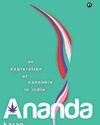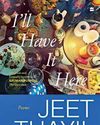Neuroscience says giving can make you healthier and happier. Here's how to start doing it right now.

The other day, I was in a giving quandary—a situation many will relate to.
It was an after-dinner outing with friends, sitting in a car like many other groups, in front of a famous dessert café in Bengaluru. The norm is that the waiters come to you, take your order, you eat your chosen guilty pleasure in the car, then pay for it and zoom off.
I was already ill at ease with a running engine and air conditioner, so I requested my friend to turn them off and we rolled our windows down. But halfway through the first few mouthfuls, a lad, who looked about 10 or 12 years old, came to my window and said: “Didi, I am hungry too.”
I froze. The mood in the car changed from convivial to uncomfortable and then confusion to panic. Should I give him what I was eating? Buy him another one? Give him money? Request him to leave? Should I assuage my conscience and the boy’s need of the moment? Or should I firmly discourage begging and possibly child trafficking?
This kind of predicament is an everyday occurrence in India. While many are inured to it, others want to address it by giving back—and in a way that will make a difference.
So, how do you go about it?
Donate during an event:
For instance, you can take part in DaanUtsav, India’s week-long philanthropy festival that starts on Gandhi Jayanti, 2 October. An annual celebration of giving in which 60 lakh people are expected to participate this year—from all corners of India and different walks of life—it is a perfect starting point.
Esta historia es de la edición October 2016 de Reader's Digest India.
Comience su prueba gratuita de Magzter GOLD de 7 días para acceder a miles de historias premium seleccionadas y a más de 9,000 revistas y periódicos.
Ya eres suscriptor ? Conectar
Esta historia es de la edición October 2016 de Reader's Digest India.
Comience su prueba gratuita de Magzter GOLD de 7 días para acceder a miles de historias premium seleccionadas y a más de 9,000 revistas y periódicos.
Ya eres suscriptor? Conectar

ME & MY SHELF
Siddharth Kapila is a lawyer turned writer whose writing has focussed on issues surrounding Hinduism. His debut book, Tripping Down the Ganga: A Son's Exploration of Faith (Speaking Tiger) traces his seven-year-long journey along India's holiest river and his explorations into the nature of faith among believers and skeptics alike.

EMBEDDED FROM NPR
For all its flaws and shortcomings, some of which have come under the spotlight in recent years, NPR makes some of the best hardcore journalistic podcasts ever.

ANURAG MINUS VERMA PODCAST
Interview podcasts live and die not just on the strengths of the interviewer but also the range of participating guests.

WE'RE NOT KIDDING WITH MEHDI & FRIENDS
Since his exit from MSNBC, star anchor and journalist Mehdi Hasan has gone on to found Zeteo, an all-new media startup focussing on both news and analysis.

Ananda: An Exploration of Cannabis in India by Karan Madhok (Aleph)
Karan Madhok's Ananda is a lively, three-dimensional exploration of India's past and present relationship with cannabis.

I'll Have it Here: Poems by Jeet Thayil, (Fourth Estate)
For over three decades now, Jeet Thayil has been one of India's pre-eminent Englishlanguage poets.

Orbital by Samantha Harvey (Penguin Random House India)
Samantha Harvey became the latest winner of the Booker Prize last month for Orbital, a short, sharp shock of a novel about a group of astronauts aboard the International Space Station for a long-term mission.

She Defied All the Odds
When doctors told the McCoombes that spina bifida would severely limit their daughter's life, they refused to listen. So did the little girl

DO YOU DARE?
Two Danish businesswomen want us to start eating insects. It's good for the environment, but can consumers get over the yuck factor?

Searching for Santa Claus
Santa lives at the North Pole, right? Don't say that to the people of Rovaniemi in northern Finland